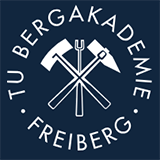Detailed introduction of Freiberg University of Mining and Technology:
Introduction
Founded in 1765, Freiberg University of Mining and Technology is one of the oldest technical universities and the earliest mining university in the world. Its research in geotechnical and mining engineering is at a world-class level.
Overview
Student size: There are nearly 5,000 students in total, of which about 11% are international students.
Faculty: About 100 professors and more than 250 assistant researchers.
History
The University of Technology Freiberg was established in 1765 by Prince Franz Xavier, the Regent of Saxony, according to the plan of Friedrich Wilhelm von Oppel and Friedrich Ann von Heinitz. It was originally a mining college and gradually developed into a comprehensive industrial university.
Foundation time
1765 Years.
School Strength
Academic Status: As an industrial university with a long history, it has an important academic status in the fields of mining engineering and geological science in Germany and even the world. It is one of the top universities in the ranking of university study subjects in the past ten years by the German Higher Education Development Research Center (CHE) and the German World News (DIE ZEIT).
Scientific Research Achievements: The chemical elements indium and germanium were discovered here. The per capita third-party funding for professors ranks first among universities in eastern Germany. The university's research strength ranks among the top German universities. Its Geotechnical Engineering Research Institute has achieved many latest research results in the basic theory and application research of rock mechanics, such as indoor rock mechanics experiments, numerical simulations, and underground rock laboratories.
International Exchange: It has signed cooperation agreements with 46 international universities and has exchanges and contacts with about 42 schools around the world, providing students with rich international exchanges and internship opportunities.
Institutional Nature
Public University.
Educational Philosophy
Theoretical learning is closely combined with experiments and practice, focusing on cultivating students' practical ability and ability to solve practical problems, emphasizing the cross-integration of disciplines, and cultivating professionals with innovative spirit and comprehensive qualities.
Key Laboratories and Disciplines
Key Disciplines: Geology / The university has strong strengths in mineralogy, geoecology, geological information and geophysics, earth science, geological survey technology and mining, environmental engineering, materials science and materials technology, and economic engineering. Among them, mining engineering ranks 22nd in the world.
Key Laboratory: It has scientific research institutions such as the Institute of Geotechnical Engineering. The institute is equipped with advanced rock mechanics indoor test equipment, numerical simulation software, and underground rock laboratories and other scientific research facilities, providing an important experimental platform for scientific research in the fields of geotechnical engineering and mining engineering.
Department
The university has 6 colleges, as follows:
School of Mathematics and Informatics: It provides courses and research projects in related majors such as mathematics and computer science.
School of Chemistry and Physics: It covers teaching and scientific research in basic disciplines such as chemistry and physics, and provides theoretical support for related engineering fields.
School of Geology, Geoengineering and Mining: It is a traditional advantageous college of the university, focusing on majors such as geological science, geoengineering and mining engineering, and cultivating professional talents in the mining field.
School of Mechanical Manufacturing and Energy Power Engineering: It involves majors such as mechanical manufacturing and energy power, and focuses on cultivating students' practical ability and innovative spirit in the fields of mechanical engineering and energy.
School of Materials Science and Technology: Dedicated to the research and teaching of materials science and engineering, including the preparation, performance testing and application of materials.
School of Economics: Provides professional courses such as economics and business administration to cultivate professionals with economic management knowledge and practical ability.
Ranking
Comprehensive ranking: The specific ranking of the school in the world comprehensive university rankings has not been found, but it has been ranked among the top in the rankings of college study subjects in the past ten years by the German University Development Research Center (CHE) and the German World News (DIE ZEIT).
Professional ranking: In the field of mining engineering, the school ranks 22nd in the world; atmospheric science and marine science majors are ranked 201st in the world; materials engineering majors are ranked 301st in the world.
Fees
Tuition: All learning programs are free of tuition, and students only need to pay a registration fee of about 70 euros per semester.
Living expenses: The average annual living cost is about 9096 euros, and the average annual on-campus accommodation cost is about 7680 euros. Euro.
Campus
Location: Located in Freiberg, Saxony, Germany, about 30 kilometers away from Dresden, the capital of Saxony. The city style is deeply influenced by the university. The university's classrooms, laboratories, libraries, etc. are distributed throughout the town and can be reached on foot, which is convenient for communication and contact between students and professors.
Teaching facilities: The campus has complete central facilities, such as library, sports center, computer center, language center, etc., which provide students with excellent learning and living conditions.
Campus life: The school has only one campus, with student dormitories on campus. The city of Freiberg where the school is located is an attractive tourist destination. Students can enjoy a variety of cultural activities here, including classical and modern concerts, theaters, cinemas, etc. In addition, there are many outdoor activities such as hiking and skiing in the surrounding area.
-

Heidelberg University
-

University of Freiburg
-

University of Jena
-

University of Marburg
-

University of Rostock
-

University of Halle-Wittenberg
-

University of Bayreuth
-

Leipzig University
-

University of Tübingen
-

Humboldt University of Berlin
-

Mesoamerican University
-

Istmo University
-

Mariano Galvez University of Guatemala
-

Regional University of Guatemala
-

Galileo University
-

Francisco Marroquín University
-

Rafael Landívar University
-

University of the Valley of Guatemala
-

University of San Carlos of Guatemala
-

Technological Institute of Tlaxcala Plateau
-

Golfo University
-

Technological University of South Sonora
-

Technological University of Huejotzingo
-

Tizimín Institute of Technology
-

Chilpancingo Institute of Technology

